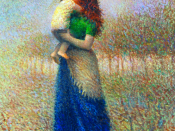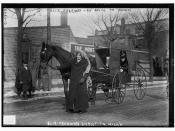2nd Summary Paper
Concept of Reading
Freeman's chapter concerning "Attachment Theory" is overly scientific and stagnant. Many students have already studied attachment theory while in Developmental Psychology, which is a required course for undergraduate social work students. I read diligently yet failed to make the supposed connection he spoke of when he stated, "to understand the significance of loss......one must have an understanding of the meaning of attachment" on page 44 of the text. He thoroughly explained the theoretical underpinnings of attachment theory; however, the transition from this theory to bereavement was forced and illogical.
I chose this chapter to write about because I felt that the ascertained point Freeman was making was, in fact, correct. Attachment's role in the grieving process is one of a companion. The more attached someone is to the dying or deceased person; the more grief that will be experienced. When someone mourns for a person, the role the deceased person played in that person's life will inevitably be missed.
Practice Importance
Knowledge of how a person might grieve is essential in end of life care. When a significant loved one dies, the grief will be more intense than that of an acquaintance. In essence, the more involved someone is in our life, the more they will be missed. Unfortunately, many employers give employees a set amount of time for grieving, no matter what the connection was. Many consider only close family members, such as a father, mother, child, aunt, uncle, or sibling, as an approved person to grieve. What does this say for lovers or close friends who probably have had a more significant role in our lives but are not considered when asking for time from work?


